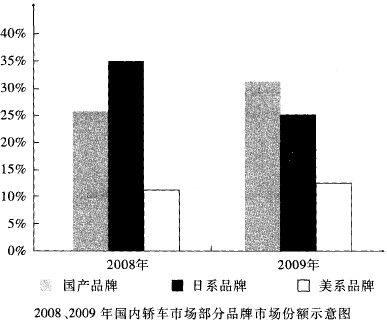- A.EU funds for poor regions be increased
- B.stricter regulations be imposed
- C.only core members be involved in economic co-ordination
- D.voting rights of the EU members be guaranteed
- A.pessimistic
- B.desperate
- C.conceited
- D.hopeful
- A.poor countries are more likely to get funds
- B.strict monetary policy will be applied to poor countries
- C.loans will be readily available to rich countries
- D.rich countries will basically control Eurobonds
- As well as those chronic problems, the EU face an acute crisis in its economic core, the 16 countries that use the single currency. Markets have lost faith that the euro zone's economies, weaker or stronger, will one day converge thanks to the discipline
- Germany thinks the euro must be saved by stricter rules on borrowing, spending and competitiveness, barked by quasi-automatic sanctions for governments that do not obey. These might include threats to freeze EU funds for poorer regions and EU mega-project
- A "southern" camp headed by French wants something different: "European economic government" within an inner core of euro-zone members. Translated, that means politicians intervening in monetary policy and a system of redistribution from richer to poorer
- It is too soon to write off the EU. It remains the world's largest trading block. At its best, the European project is remarkably liberal: built around a single market of 27 rich and poor countries, its internal borders are far more open to goods, capital
- A.it has more or less lost faith in markets
- B.even its supporters begin to feel concerned
- C.some of its member countries plan to abandon euro
- D.it intends to deny the possibility of devaluation
- A.are competing for the leading position
- B.are busy handling their own crises
- C.fail to reach an agreement on harmonisation
- D.disagree on the steps towards disintegration
- A.They ignored details and proportions.
- B.They were built with materials popular at that time.
- C.They were more spacious than neighboring buildings.
- D.They shared some characteristics of abstract art.
- A.Mechanical devices were widely used.
- B.Natural scenes were taken into consideration.
- C.Details were sacrificed for the overall effect.
- D.Eco-friendly materials were employed.
- A.It was founded by Ludwig Mies van der Rohe.
- B.Its designing concept was affected by World War II.
- C.Most American architects used to be associated with it.
- D.It had a great influence upon American architecture.
- A.was related to large space
- B.was identified with emptiness
- C.was not reliant on abundant decoration
- D.was not associated with efficiency
- A.American Newspapers; Struggling for Survival
- B.American Newspapers: Gone with the Wind
- C.American Newspapers: A Thriving Business
- D.American Newspapers; A Hopeless Story
- A.Distinctiveness is an essential feature of newspapers.
- B.Completeness is to blame for the failure of newspapers.
- C.Foreign bureaus play a crucial role in the newspaper business.
- D.Readers have lost their interest in car and film reviews.
- A.readers threatened to pay less
- B.newspapers wanted to reduce costs
- C.journalists reported little about these areas
- D.subscribers complained about slimmer products
- A.have more sources of revenue
- B.have more balanced newsrooms
- C.are less dependent on advertising
- D.are less affected by readership
- A.may stay for the attractive offers from the firm
- B.have often had records of wrongdoings in the firm
- C.are accustomed to stress-free work in the firm
- D.will decline incentives from the firm
- A.permissive
- B.positive
- C.scornful
- D.critical
- A.become more stable
- B.report increased earnings
- C.do less well in the stock market
- D.perform. worse in lawsuits
- A.generous investors
- B.unbiased executives
- C.share price forecasters
- D.independent advisers
- 28
-
【B20】
- A.invited
- B.appointed
- C.allowed
- D.forced
- 30
-
【B19】
- A.manageable
- B.defendable
- C.vulnerable
- D.invisible
- 31
-
【B18】
- A.skepticism
- B.relerance
- C.indifference
- D.enthusiasm
- 32
-
【B15】
- A.on
- B.after
- C.beyond
- D.across
- 33
-
【B16】
- A.divided
- B.disappointed
- C.protected
- D.united
- 34
-
【B17】
- A.frequently
- B.incidentally
- C.occasionally
- D.eventually
- 35
-
【B13】
- A.trusted
- B.modernized
- C.thriving
- D.competing
- 36
-
【B14】
- A.caution
- B.delight
- C.confidence
- D.patience
- 37
-
【B12】
- A.In vain '
- B.In effect
- C.In return
- D.In contrast
- 38
-
【B11】
- A.carry on
- B.linger on
- C.set in
- D.log in
- 39
-
【B10】
- A.released
- B.issued
- C.distributed
- D.delivered
- 40
-
【B8】
- A.dismiss
- B.discover
- C.create
- D.improve
- 41
-
【B9】
- A.recall
- B.suggest
- C.select
- D.realize
- 42
-
【B6】
- A.by
- B.into
- C.from
- D.over
- 43
-
【B7】
- A.linked
- B.directed
- C.chained
- D.compared
- 44
-
【B3】
- A.careless
- B.lawless
- C.pointless
- D.helpless
- 45
-
【B5】
- A.information
- B.interference
- C.entertainment
- D.equivalent
- 46
-
【B4】
- A.reason
- B.reminder
- C.compromise
- D.proposal
- 48
-
【B2】
- A.for
- B.within
- C.while
- D.though
 我
我




